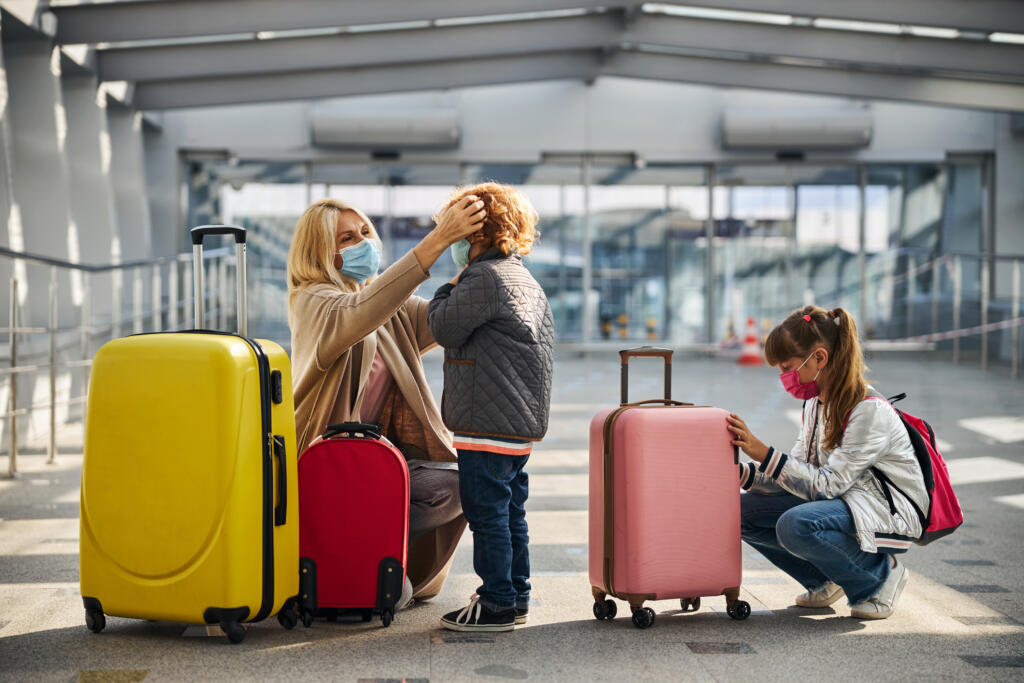
Mark Smith, a partner specialising in legal matters relating to children, offers his advice on how to deal with the possibility of taking your child or children abroad this year if you have shared parental responsibility.
Whether to go abroad on holiday is still limited based upon the COVID-19 restrictions. And whilst a holiday in the UK is on the cards, the idea of taking a foreign holiday when there remain “red list” countries, low vaccination numbers and reports of overwhelmed health services in other parts of the world, will mean that the prospect of certain foreign travel being put back until the Autumn at the earliest.
Travel restrictions
At the time of writing, countries are within a traffic light system to show where you can and cannot visit and what you need to do in terms of self-isolating when you return to England. When these restrictions lift, however, situations may arise where one parent seeks to take the child or children out of the country on a foreign holiday and the other parent objects.
In those circumstances, it is important to understand that the other parent’s motivation could very well be a valid one, borne out of genuine concern. We are in unchartered territory in dealing with the pandemic and there remain many unanswered questions.
When discussing travel, you may be able to allay fears the other parent may have by explaining the steps any hotel or accommodation is taking to make the stay Covid-safe, whether you are seeking to avoid crowded areas and what you agree should happen in an emergency. If you are still unable to agree then mediation may help, as could involving a family member or friend that you both see as neutral to help you discuss matters.
Parental responsibility
Taking a child from the jurisdiction without the permission of the other parent with shared parental responsibility is a serious matter. It could result in a parent committing an offence of child abduction, which in turn could involve serious criminal consequences.
Mothers automatically have parental responsibility for their children. The situation is different for fathers. A father can acquire parental responsibility by being married to the child’s mother at the time of the child’s birth (or thereafter) or through agreement with the mother or court order.
Communication is key
If a parent has a Child Arrangements “to live with” order in their favour, they can take their children out of the jurisdiction without the permission of the other parent for up to 28 days at a time. Even in those circumstances, it is good practice to ensure that the other parent has details of the trip, including details of where the child will be staying, as well as emergency contact information.
However, where there is no order in place, the parent seeking to take the child on holiday must have the permission of the other parent with shared parental responsibility. Ideally, that permission should be given in writing.
If that permission is not given, it is open to a parent to apply to the Court for a Specific Issue order to ask the Court to grant permission for the holiday to take place. Such applications should not be made lightly and it is important to seek advice beforehand to ensure that you have available the information a court would require to assist it in making a decision.
Plan ahead
Like many services, the Court system is under significant pressure at the moment. That means seeking to obtain a hearing at short notice for the purposes of holiday is going to be difficult.
The Court has to prioritise matters and, even though the holiday you may have booked at last minute is a bargain, if permission has not be given there is no guarantee that you are going to be able to go with your child or children, as a court may not be in a position to list a hearing in time. If anything, the situation makes it even more important to start the dialogue now, even in principle, and work in a collaborative manner to reach an agreement if at all possible.
Please note: the Government currently advises against all non-essential international travel to some countries and territories. You should check the country page for your destination.
